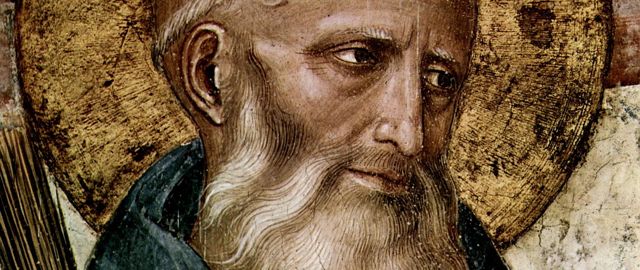
Ever heard of “the Benedict Option”? If you’re like most Catholics, you probably haven’t. Essentially, it’s a proposal The American Conservative blogger and author Rod Dreher, inspired by Notre Dame professor Alasdair MacIntyre, has come up with. It roughly amounts to this:
The world around us is crumbling. Liberalism, the enemy, has succeeded, and it is slowly but surely making it impossible for Christians to live their faith in the public square. Take cover. Gather with like-minded persons. Live intentionally, outside of public sight. Better to keep your integrity than mingle among the heathens, where you risk contamination and persecution. The storm will blow over soon.
It’s an interesting theory. One that has received attention from many top thinkers. I plan on writing about it more in this space in the near future. In general, I tend to agree with Gabriel S. Sanchez on how Catholics should approach Dreher’s thesis (read Sanchez’s writings on the matter here, here, here and here)
Today, the Benedict Option is in the news again. In an essay for Ethika Politika, a website I used to read on a fairly regular basis, the Benedict Option is blamed for the rise of Donald Trump.
Sanchez, on his website Opus Publicum, points out where the author of that article goes wrong. Read it. And be sure to familiarize yourself with Dreher’s “Benedict Option” writ large. Which reminds me: hasn’t the SSPX (sort of) been doing the Benedict Option for more than four decades now?
Bishop Athanasius Schneider is held in high esteem by many Traditional Catholics. And for good reason. He has been a voice of sanity in these troubled times. True as that may be, his public response to Amoris Laetitia was rightly viewed by many of his admirers as inadequate. Louie Verrechio has written an open letter to His Excellency urging him to remain strong in this fight. Chris Ferrara has done the same at The Remnant. Even Steve Skojec, who believes Schneider to be “the single most courageous bishop in the Church fighting against the relentless attacks against Our Lord and His teachings coming from within the hierarchy,” came out asking for more from the Bishop. It is good that these letters were done publicly. As an aside, while Schneider, as well as men like Cdl. Burke and Cdl. Pell, see, to an extent, the crisis in the Church, the Gold Standard still remains Abp. Marcel Lefebvre. Let’s never forget that.
Pope Francis’ Charlemagne Prize speech was about as un-Catholic as they come. He called for Europe to embrace a “new humanism,” one centered on “dialogue” and “integration.” Not one word about Jesus Christ, the man whom he represents on this earth, was mentioned. Be that as it may, Austen Ivereigh of Crux thinks the speech was “great.” Ivereigh gladly writes the following:
Francis invites Europe to renew itself not by returning to the lost age of Charlemagne and of Christendom but by recovering the vision of the postwar founders of the European Union.
There is no doubt where he sees the future of Europe: recovering its true mission in the prophetic vision of its postwar leaders.
In other words, Francis believes, like John Paul II and Benedict before him, that the Social Kingship of Christ is outdated. Rather, what is needed now is not a return to the sweet yoke of Christ, but to a Masonic humanism based on “the dignity of the human person.” Has the Holy Father ever prayed the Psalms? Psalm 127: “Unless the Lord builds the house, they labour in vain that build it.”
